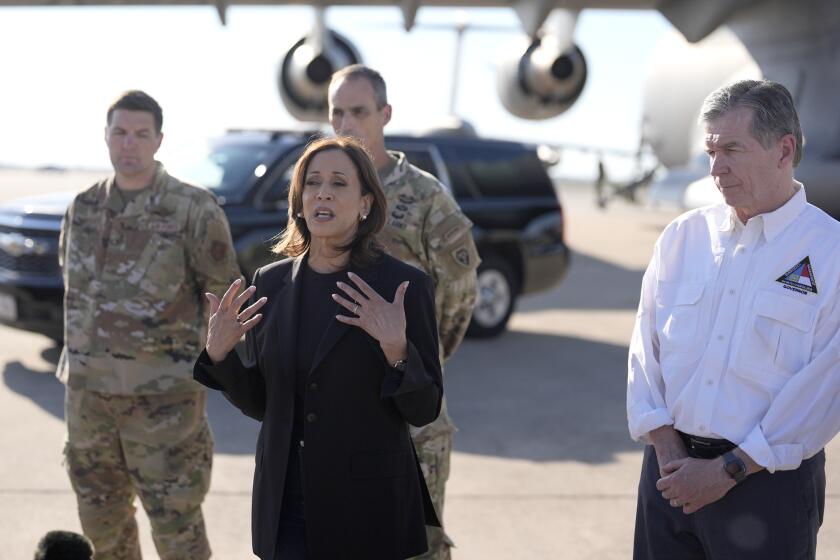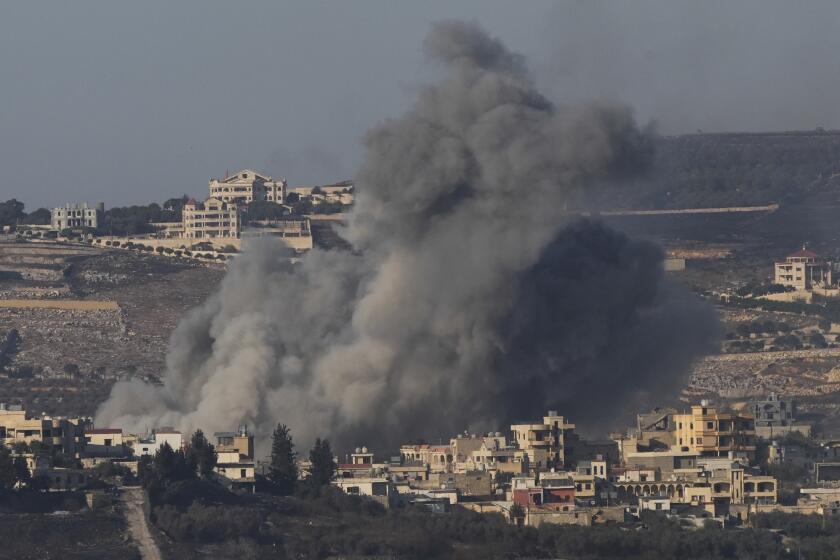The Task of a Lifetime: Teaching a New Nation to Walk
We all have our jobs, and if we’re lucky there’s some sense of personal satisfaction to make up for the inevitable drudgery. Unfortunately, too many people spend a lifetime working and never feel a part of anything larger than the office furniture.
When was the last time you were really jazzed about what you’re doing?
That long, huh?
Imagine, then, how charged up Richard Kontrimas is feeling these days as he sits at his desk in Laguna Hills and contemplates how he can help re-create his native Lithuania. It’s one thing to sell computer technology to other Western nations; imagine how it will feel to sell it to the country of your birth, one that has been under Soviet domination for 50 years.
Born in Lithuania of an American mother and Lithuanian father, Kontrimas is part of a small network of Lithuanian businessmen on the West Coast who want to, as he said, “accelerate the country’s process for getting out of bondage.”
Kontrimas and friends plan to concentrate their efforts on such mundane services as communications, transportation, finance, engineering and manufacturing. Among the tasks will be things as fundamental as getting Lithuania its own area code, so callers won’t have to continue going through Moscow.
After a lifetime of seeing his homeland under Soviet authority, it will be a labor of love for the 57-year-old Kontrimas.
“It’s a monumental task, but it’s very exciting,” he said. “My father participated in the birth of Lithuania in 1918, and I have the opportunity to do the same thing now. To see a nation come out of its ashes and to continue in history, it’s extremely exciting.”
The nuts and bolts of what Kontrimas will do, along with a handful of other businessmen in California, Oregon and Washington, is to help prop up the Lithuanian infrastructure. Lost in the euphoria, Kontrimas knows, is the difficulty of overturning the Soviet economic structure.
“We have seen what’s happened in Poland, Hungary, Czechoslovakia and the other liberated countries, and it’s chaos,” Kontrimas said.
Just in the past couple years, Kontrimas wanted to have some rudimentary dealings with Lithuania--to have some parts manufactured there, for example--and found the country still unable to handle such elemental chores.
“What we need is a business Peace Corps,” he said. “We need the brains of Western mentality . . . helping to navigate in that labyrinth of economic, business and political issues that they have no idea about, because the people have been so much, let’s say incarcerated, in that Soviet structure that they don’t understand Marketing 101.”
All those things that to the rest of us might seem pretty dry--how to set up delivery systems, how to insure quality, how to respond promptly to customer needs--will energize the new Lithuanian economy, Kontrimas said.
Yes, it’s basic business, but as Kontrimas said: “To do it in my own country, my own town, perhaps, to come back and contribute materially to the country’s well-being, is doubly rewarding.”
I asked Kontrimas whether the recent events had left him giddy, after all the years of pent-up frustration.
“The fat lady has not sung yet,” he said. “This is just the beginning of the end. Now we have to still see how the Soviet Parliament will behave. They decided not to vote on the subject (of Baltic independence) today. I think Gorbachev has lost a lot of his strength, and with Yeltsin, who’s very much pro-independence for Lithuania--at least he appears to be that way--we really have to see how the final treaties will be signed.”
But there is hope and a sense that it finally is going to happen. That’s a long stride from wondering whether he would ever see a free Lithuania or even, after the rise of Gorbachev, believing that he would see a free Lithuania but wondering whether it would be in this century. Now that it’s close, Kontrimas knows, he must let events play themselves out.
Still, he’s already thinking of a trip to Lithuania, where he hasn’t been since early in 1990 as part of a U.S. team that oversaw elections.
“I’m looking forward to going back,” Kontrimas said. “On a Lithuanian visa.”
More to Read
Sign up for Essential California
The most important California stories and recommendations in your inbox every morning.
You may occasionally receive promotional content from the Los Angeles Times.










